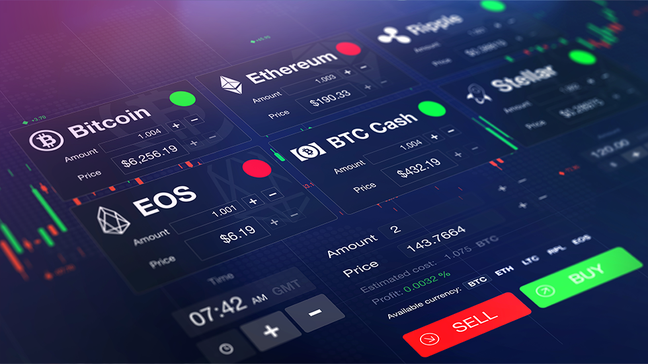Enhancing Your Trading Skills with a Trading Simulator Crypto

Maximizing Your Trading Potential with a Trading Simulator Crypto
The rapid evolution of the cryptocurrency market presents both opportunities and risks for traders. To navigate this volatile landscape effectively, one powerful tool at their disposal is a Trading Simulator Crypto. These simulators allow traders to practice, refine their strategies, and gain confidence without the financial risks associated with real trading. If you’re interested in exploring how to recover from setbacks in your online strategies, Trading Simulator Crypto click here for insights. In this article, we’ll discuss the importance of trading simulators and how they can facilitate growth in your trading journey.
What is a Trading Simulator Crypto?
A trading simulator for cryptocurrency is a virtual trading platform that allows users to simulate trading without real money. These simulators use real-time market data and provide a trading environment that mirrors the actual market, allowing traders to test strategies, tools, and methodologies.
Why Use a Trading Simulator?
Using a trading simulator has several key advantages:

- Risk-Free Environment: Trading simulators eliminate the financial risk that comes with trading real money. New traders can practice and learn without the fear of losing funds.
- Strategy Testing: Traders can experiment with different strategies to see how they perform under various market conditions. This is particularly beneficial for those developing automated trading algorithms.
- Market Understanding: Simulators provide insights into how different factors influence cryptocurrency prices. Being able to analyze trades retrospectively helps traders understand market movements better.
- Emotional Control: Trading can be an emotional experience. By simulating trades, traders can practice maintaining composure and discipline, which is crucial when real money is on the line.
- Enhancing Technical Skills: A simulator offers a platform for traders to familiarize themselves with different technical analysis tools and indicators. This hands-on experience will benefit their trading precision.
How to Choose the Right Trading Simulator Crypto?
When looking for a trading simulator, consider the following features:
- Real-Time Data: Ensure that the simulator uses real-time market data to provide a realistic trading experience.
- User Interface: A user-friendly interface makes it easier for beginners to navigate the platform and execute trades efficiently.
- Range of Cryptocurrencies: Look for simulators that offer a variety of cryptocurrencies to trade. This will help you diversify your simulation experience.
- Educational Resources: Many simulators provide educational materials, tutorials, and webinars that can enhance your learning experience.
- Community Support: Platforms with active communities encourage knowledge sharing and can provide valuable insights from experienced traders.
Common Mistakes to Avoid When Using a Trading Simulator
While trading simulators are a great tool, users often make mistakes that can hinder their learning process:

- Treating Simulated Trades as Real Trades: Remember that no real money is at stake. It’s easy to take unnecessary risks or be overly aggressive, which can lead to bad habits.
- Ignoring Market Conditions: Some traders forget that simulated environments may not fully mimic extreme market conditions. Always keep track of the larger market landscape.
- Not Reviewing Performance: Failing to review and analyze simulated trades can prevent you from learning from your mistakes and successes.
- Overlooking the Emotional Aspect: While simulators allow for risk-free trading, they don’t emulate the emotional pressure associated with real trading. Be mindful of this disconnect.
Key Features of an Ideal Trading Simulator
A well-designed trading simulator should contain several key features that enhance the user experience. These include:
- Backtesting Capabilities: The ability to backtest strategies against historical data can help you understand how your approach would have performed under various market conditions.
- Customization Options: The simulator should allow users to customize their trading scenarios, including the selection of assets, timeframe, and trading strategies.
- Progress Tracking: Consider simulators that offer performance analytics and tracking tools. This will help you gauge your progress over time and identify areas for improvement.
- Social Trading Features: Some simulators allow you to follow and copy trades from successful traders, which can be especially beneficial for beginners.
Conclusion
In the competitive world of cryptocurrency trading, using a Trading Simulator Crypto can provide you with the knowledge, experience, and confidence necessary to excel. The benefits of risk-free practice, backtesting, and emotional fortitude cannot be overstated. By finding a simulator that meets your needs and avoiding common pitfalls, you can cultivate your skills and improve your trading strategies. Embrace the learning journey that a trading simulator offers, and you’ll be well on your way to becoming a proficient crypto trader.






















